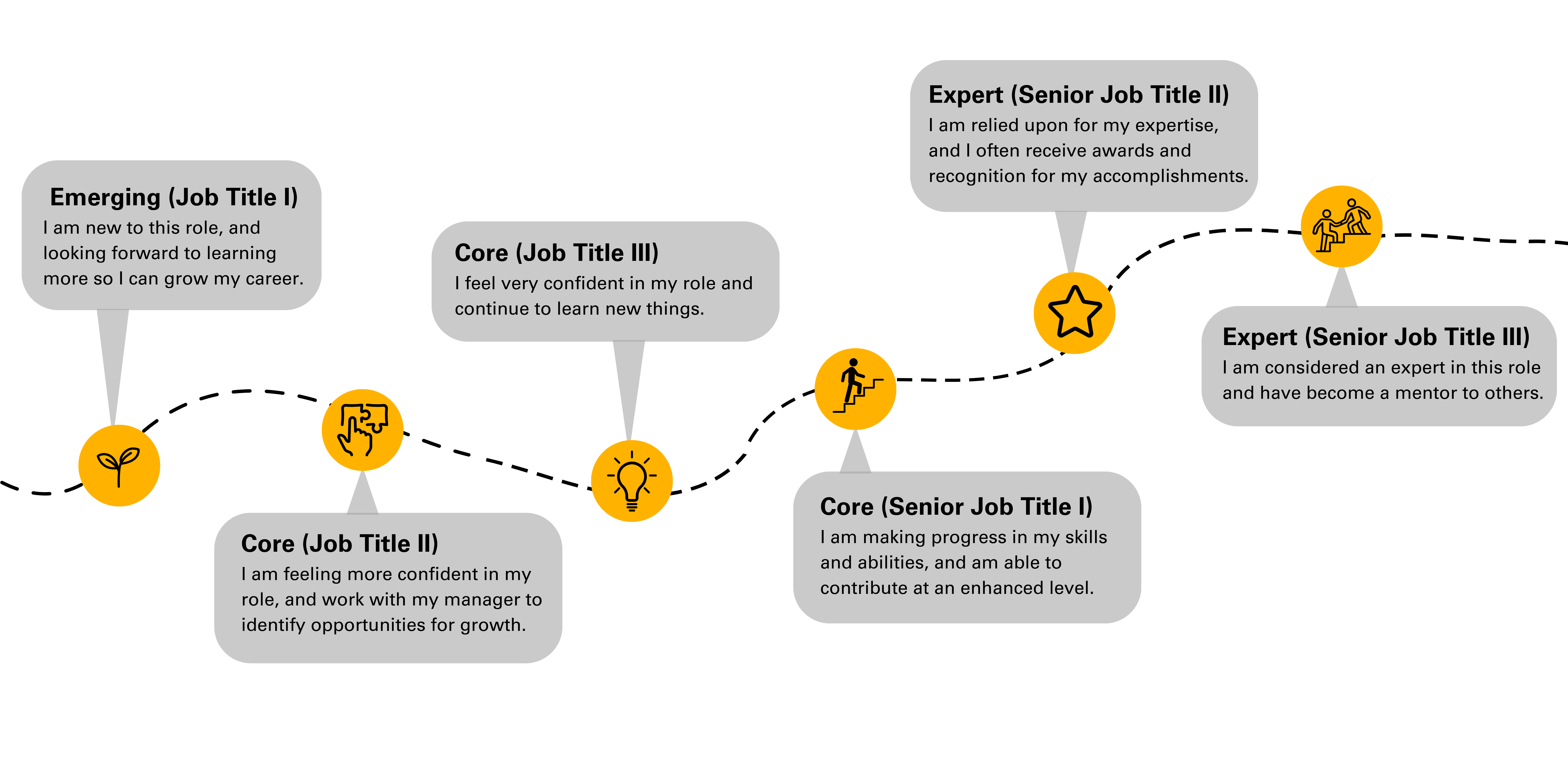All career paths are currently under review. Updates will be made pending the completion of university review of the Quest 2028 and Research strategic plans.
Career Pathing
Career pathing paints a clear picture of what an employee's individual career development could look like at VCU by enhancing visibility into the types of jobs that exist within the university. This allows employees to map out their career trajectory according to their desired next steps, whether that is growth within their current position, career advancement, or transitioning to another department or type of role. At its core, career pathing seeks to keep top talent at VCU by supporting employees in crafting and achieving their career goals.
Using Career Paths
The career pathing process is driven by the employee and their skills, knowledge, abilities, interests, and career objectives. Employees can use career paths as an actionable, technical, skill-based, and competency-based plan to grow and develop in their current job family or a different job family of interest at VCU. Career paths enhance employee awareness of options for career movement, as well as visibility into how employees' skills and knowledge may transfer to new roles.
Managers also benefit from career pathing as a resource to share with employees during career development conversations and planning. Career paths define skills and abilities necessary for employees to grow within and beyond their current roles, which facilitates conversations about actionable next steps for employees seeking career growth.
Training
Training is available for all staff and managers to help effectively utilize career pathing resources.
- Career Pathing @VCU: Overview for All Staff (Required)
- Career Pathing @VCU: Manager Support (Required for managers)
- Having Career Development Conversations (Recommended)
- Career Pathing Practice (Recommended)
Employees can advance through their career path to move up the job series to the next level in their position. Built within VCU's job family structure, all job titles have three levels within them:
Emerging: The initial phase of the job series. Employees in this phase are developing their skills in the role while building their foundational knowledge. (Ex. Job Title I)
Core: Individuals often spend the majority of their career within the core of the job series. In this phase, employees are fully proficient in the duties and responsibilities of their positions and possess the foundational knowledge, skills, abilities and competencies to achieve organizational goals. (Ex. Job Title II, Job Title III, Senior Job Title I)
Expert: The expert phase of the job series is reserved for those individuals who possess unique or exceptional qualifications. These highly advanced and/or specialized skills enable individuals to achieve complex goals and demonstrate mastery of their roles. (Ex. Senior Job Title II, Senior Job Title III)
For example, a job series might be Accountant I, II, and II; Senior Accountant I, II, and III. Each job title in the series will have a unique market range that you can view within the job summary tool. Employees may be eligible for salary increases as they achieve milestones in their career path, both across the stages in their job series (emerging, core, expert) and up to the next job title in the series (I, II, III).
Contact Us
For questions or more information, contact career development at careerdev@vcu.edu. Your HR Professional may also be able to answer career development related questions.
To provide comments or suggestions on how to enhance these career paths, submit our feedback form.
